When Michael S. Hart founded Project Gutenberg forty years ago, today’s popularity of e-books and the rapid expansion of digital publishing could have never been predicted.
In May 2011, online bookstore and digital publisher Amazon announced it sold more e-books than print editions. With the surge in appeal, readers, writers, and publishers realize the impact of this growing technological advancement.
How has digital publishing changed or increased competition for readers? Are reader apps shaping a new generation of readers? Where is the digital publishing world headed in the next five years? What specific advantages and concerns do genre writers face? How are libraries adapting to the demand?
Join in the discussion as three authors writing in different genres, a publisher, and a university professor and emerging technologies librarian discuss the popularity of e-books in a digital world.
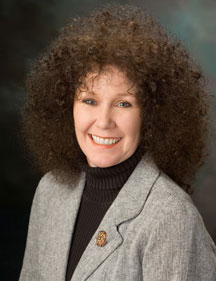
“One needs only to look at how e-book sales are currently surpassing paperback and hardcover to appreciate that more people are getting their information electronically than via traditional print.”
(Photo: Christina Hamlett)
Former actress and theater director Christina Hamlett is an award-winning author, ghostwriter, and professional script consultant whose credits to date include 26 books, 140 plays, 5 optioned feature films and hundreds of articles and interviews that appear in trade publications throughout the world. She also teaches introductory screenwriting and playwriting courses through the WOW! classroom. Additional information can be found at her website.
1.Welcome, Christina. You have an extensive background in writing for the screen and stage. How has digital publishing changed the way screenwriters and playwrights publish material?
Not only are screenwriters and playwrights able to save an enormous amount of money on ink and paper, photocopying, and postage, but there are numerous websites where they can now upload synopses, treatments, partials, and full scripts for prospective agents and producers to review. For screenwriters, one of the best websites for this purpose is InkTip. For a fee of $60 per listing, writers can electronically upload their projects for a six-month period, during which time they can track the specific companies that preview their work. InkTip also publishes a free newsletter that announces the types of projects that reputable producers are currently seeking. The advantage from the producers’ standpoint is that they can download and start reading immediately the projects that tweak their interest and meet their parameters.
For playwrights, Stageplays.com recently initiated a program called “ePlays” in which authors can digitally publish their theatrical scripts and theater-related books for a set-up fee of $35. The cost to download a script is $7.95; but once five copies of your play have been sold, Stageplays refunds the set-up fee. Future sales of scripts are split 50/50 in addition to the issuance of performance licenses for a 70/30 split in favor of the playwright. The electronic publication of plays offers tremendous exposure for playwrights because play producers typically do not accept new works for consideration unless they are sent via an agent or have been professionally produced.
Nor should screenwriters and playwrights ignore free platforms such as Kindle, websites such as Off the Bookshelf, or providing scene samples on their own websites and aggressively promoting them through social media.
2.So many options exist for screenwriters and playwrights! Considering all the online choices, what safeguards do you take to protect your work from e-piracy?
Whether you are electronically entering your script in a contest, e-mailing it as a (requested) attachment to an agent or producer, or uploading it to a website where it will be accessible to prospective buyers, you should always register it first with either the U.S. Copyright Office or Writers Guild of America. For a fee, both agencies allow you to submit digital copies of your work in order to establish the date of completion. Maintaining a paper trail of correspondence is essential if you are shopping your script via e-mail. Be wary, for instance, in responding to Craigslist posts or other “blind” ads in which you are asked to e-mail full scripts to unknown parties. Nor should you ever post script content on websites that are not password protected because you have no idea whether the people doing the browsing are other writers looking to steal ideas.
You also need to be aware that many of today’s producers who accept electronic submissions will likely ask you to fill out a consent form that you will not sue them if they reject your project, but ultimately produce something that could be construed as similar. Do not freak out at this and assume that you are giving them permission to steal your brilliance. This is a standard industry practice to protect them from getting sued by paranoid writers. If an idea is great, they will want to buy it from you. If it’s bad, they’re not going to want it. You don’t have to sign the form if you don’t want to. This means, of course, that they will also not read your material.
3.How do playwrights/screenwriters benefit from digital formats? Have sales increased since certain companies, like Playscripts, offer partial perusal scripts online?
Using script formatting software such as Final Draft cuts down significantly on how long it takes to make a project look professional and consistent with industry standards. Rewrites are easier, too, and several of these programs have both a Post-It note feature for reviewers to indicate where specific changes should be made and a “voice” function for writers to hear the dialogue they’ve written. As previously mentioned, digital formats also cut down on copying and postage costs and enable screenwriters and playwrights from anywhere in the world to make their projects accessible. If they are entering contests, they no longer have to worry about their projects missing a tight deadline or going astray in the postal system.
As for increased sales, any medium that can deliver content instantly—as well as not kill any trees or harm the environment—is going to be popular. One needs only to look at how e-book sales are currently surpassing paperback and hardcover to appreciate that more people are getting their information electronically than via traditional print. Websites such as InkTip also have a high track record of script options and sales because of a feature that allows agents and producers to define specific search criteria such as genre, budget, setting and circa, ages and ethnicities of characters, and themes, which then generates a list of titles that represent the best match.
4.What developments can screenwriters/playwrights expect in the next five years?
My prediction for less than five years is that digital submissions will become the norm for most production companies as the combined result of environmental consciousness and expediency. Further, as film and theatrical companies continue to shrink in response to a downward spiraling economy, screenwriters and playwrights will be faced with the choice of whether they want to continue to wait for possible production (possibly forever) or share their stories now with readers and allow the latter to use their imaginations, insofar as envisioning what the characters and settings look like. Even if a project isn’t produced during the author’s lifetime, putting the story into a readily reachable format gives it an immortality it might not otherwise achieve.
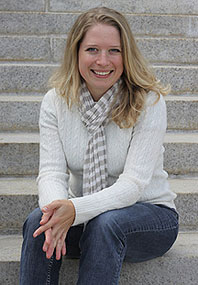
“I'm creating a type of book that didn't really exist before and hopefully creating new readers by catering to a need that wasn't being met by traditional publishing.”
(Photo: Laura Schaefer)
Laura Schaefer got her start as a contributor to the University of Wisconsin's student paper The Daily Cardinal and went on to write regularly for The Princeton Review and Match.com. She is the author of The Secret Ingredient (Simon & Schuster 2011), The Teashop Girls (Simon & Schuster 2008), and Man with Farm Seeks Woman with Tractor (Thunder's Mouth Press, 2005). Laura is also the founder and publisher of Planet Explorers, guidebooks for kids. The first four titles in the series are Planet Explorers Chicago,
Planet Explorers Walt Disney World, Planet Explorers Disneyland, and Planet Explorers New York City.
5.Thank you for joining the discussion, Laura. How has digital publishing changed or increased competition for readers?
I believe it has increased competition for readers by giving readers more choice. The good news for everyone involved in writing and publishing is that it’s also creating new readers. Digital publishing allows for lower prices and a wider range of books in all genres, both fiction and nonfiction.
For example, I approached some traditional publishers about my concept for travel guidebooks written just for kids. A lot of them thought the idea was solid; but because they couldn’t foresee selling at least ten thousand copies in the first year or two after printing, they weren’t interested in moving forward.
I personally don’t need to sell that many copies to make it a worthwhile venture, so the books are available. The interesting thing is I don’t feel I’m taking readers from another publisher. I’m creating a type of book that didn’t really exist before and hopefully creating new readers by catering to a need that wasn’t being met by traditional publishing.
6.Filling that void is important advice for all writers. How will technology affect e-book sales for children’s, tweens’, and YA books and opportunities for authors?
I think it will have a huge impact on sales for children’s, tweens’, and YA books. Paper books will always exist, I believe, because they are fun to look at, hold, and collect as objects. But the e-book revolution is here. People (including kids and teens) love their smartphones, Nooks, Kindles, and iPads. The YA book market is so strong right now, and I think that will continue.
Authors can do really interesting things with the format that just wasn’t possible with regular books—like including active hyperlinks in the text or interactive elements between chapters. I think it’s exciting, and it’s going to get kids even more fired up about reading. Writers and publishers need to focus on creating quality stories and an overall wonderful reading experience, so we can take advantage of the revolution. Excellent stories will always win—no matter what format they are in.
7.Laura, you published a series of nonfiction travel guides available in Kindle format. How would you like to see kids utilize your Planet Explorer series?
I’d love to see them read the books before they go on their family vacations to learn about where they are going and have a voice in what they'll see once they get there. I also envision them having their Kindles, iPads, or smartphones with them, so they can refer to the information in Planet Explorers while they’re on vacation.
My younger brother and I were talking about the awesome ways that smartphones and tablets can be used to “augment reality,” and that’s what I hope Planet Explorers will do for families. I want a kid to glance at the book on his phone and say to his dad, “Hey, did you know that the New York City subway has over six thousand cars?” or “Let’s check out the LEGO Store—it’s not that far away.”
I’ve also included a ton of active hyperlinks in the books; so if a reader wants more information about a topic, the information is right there. For example, in my Planet Explorers Walt Disney World book, the short description of the Hall of Presidents attraction in Magic Kingdom links right to a whitehouse.gov page that gives a short bio of each U.S. President.
8.Are reader apps shaping a new generation of readers?
Yes, I think the way we read will change. We’ll probably do it in shorter bursts of time, but perhaps more overall. Not everyone is organized enough to carry a novel around with them for the times you’re stuck waiting in line. But most people will eventually have a phone capable of displaying an e-book. Perhaps reader apps will infuse more of our daily lives with literature. I love that idea.
9.Where is digital publishing headed in the next five years?
I think it will grow and grow. I hope it empowers writers and leads to new and creative content for readers. I’m ready.

“My kids who are at the age (five and seven) where they think I am perfect also prefer a print book. This will change very soon.”
(Photo: Karen Bergreen)
Lawyer-turned-comedian Karen Bergreen released her debut novel, Following Polly, just over a year ago. The avid LA Law fan stapled and collated in an upscale law firm and clerked for a federal district judge before switching careers.
Bergreen is married, with two sons at home. Since her husband and children would like to spend time with her, Bergreen decided to write a book when she’s not performing comedy.
10.It’s great talking to you about your debut novel, Karen. Following Polly is available in hard cover, paperback, and Kindle editions. How have e-book sales compared to traditional book sales?
As of now, the print sales are doing better than the e-sales. But e-sales seem to have spiked since just after the hardcover was released. Interesting to see the comparison between the sales of the paperback and the e-book when the paperback comes out on Tuesday.
11.As a mom, have you purchased e-books for your children, or do they prefer to hold and read an actual book?
I am a bit of a Luddite and prefer the actual book to an e-book, although I am training myself slowly on the Kindle. That said, my kids who are at the age (five and seven) where they think I am perfect also prefer a print book. This will change very soon.
12.Are reader apps shaping a new generation of readers?
My kids are too young to make their own decisions (and will be until they are fifty-seven and fifty-nine), but I am certain that the answer to that question is yes.
13.What direction do you think digital publishing will take in the next five years?
I think digital publishing is going to explode. Not just in terms of the way we read the book, but also in terms of the framework of the book market. Writers are having a lot of success self-publishing, cutting out the middleman. It will be interesting to see the extent to which publishers remain the gatekeepers of what is out there.
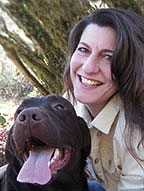
“I know I'll be white-knuckled over the next five years, holding on tight while the publishing industry races ahead in digital technology.”
(Photo: Nancy Cleary)
Wyatt-MacKenzie Publishing is an award-winning independent press celebrating fourteen years of providing an unparalleled author experience. Launched in 1998 by Nancy Cleary, Wyatt-Mackenzie has published works that have a special focus on mom writers. Cleary brings over twenty-five years as a product packager and promoter to the publishing industry.
14.Hello, Nancy. Let’s get a publisher’s perspective on e-book trends. What prompted Wyatt-MacKenzie Publishing to turn its backlist into Kindle titles? How have authors responded, and what’s been the impact for your company?
There was a tectonic shift in January 2011 toward e-books when the first best-selling Kindle success stories popped up. I think every publisher who was dragging their feet jumped into action; I know I did. I realized I could breathe new life into our backlist titles, generating revenue out of thin air; and my older authors now have a whole new promotional venue available with social media. Titles, which had not sold in seven years, began seeing weekly sales in the double digits, and the best part—a high royalty with no printing, warehousing, shipping, or returns costs!
15.Converting your company’s backlist into e-books seems like a win-win for authors and your publishing business. How has digital publishing changed or increased competition for readers?
Without author energy spent generating interest, there are no sales no matter what the delivery system—paper or digital. I think the combination of social media and quickly accessible, low-cost products are making the competition a lot more fulfilling for hard-working authors, and just as hard as ever for those who sit back and expect their books to sell without effort.
16.Are reader apps shaping a new generation of readers?
Yes, I believe my teens, Wyatt and MacKenzie, will be reading book apps with audio, video, animated illustrations, and the innate ability to interact with a community or expert on the topic.
17.What direction is digital publishing headed in the next five years?
I know I’ll be white-knuckled over the next five years, holding on tight while the publishing industry races ahead in digital technology. I imagine there will be incredible DIY tools evolving to give every creative individual the means to produce their ideas on interactive, media-rich platforms and distribute them instantly internationally. The traditional publishing model has seen its best century; writers and entrepreneurs will simply assemble a freelance team (of out-of-work book industry experts) to be able to publish, and profit, from their own imagination.
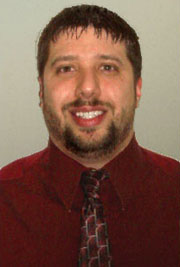
“I don't believe that e-readers and e-book apps themselves are shaping a new generation of readers, but they are just bringing book content to the devices that are already shaping their behavior and learning habits.”
(Photo: Scott Childers)
Scott Childers is the emerging technologies librarian and an associate professor at the University of Nebraska—Lincoln Libraries. He has published and presented on many facets of computers and libraries and is a former president of the Nebraska Library Association.
18.Greetings and salutations, Scott. How have (or can) libraries adapted to the emergence of e-books and products digital publishing has to offer? What drawbacks and concerns about e-books affect libraries?
Many libraries have already adapted to e-books, offering them through the web or downloaded onto a person’s computer or e-reader. In fact, a study released in 2010 shows that 66 percent of public libraries offer access to e-books of some sort. There is active shifting of library budgets to include more digital products, including e-books. I’ve met very few librarians who are against the concept of e-books. That doesn’t mean libraries have been able to provide e-book access at the levels they would want to. The main obstacle blocking major adoption of e-books are the limitations put on lending by the publishers.
As I said earlier, one of the major concerns for libraries is how publishers are imposing limits on e-book lending. HarperCollins recently created an uproar in the library and literary communities when they limited libraries to only being able to check out an e-book just twenty-six times before they had to buy another full-price license to lend it again. That’s on top of the artificial limits they put on lending, saying only a limited number of people can access an e-book at once, even though they are digital and infinitely copyable.
19.How has digital publishing changed or increased competition for readers? Are reader apps shaping a new generation of readers?
I’m assuming that you mean competition between libraries and other sources for readers. Libraries have constantly had competition for readers. All forms of leisure are competing with each other. Movies, television, video games, hanging out with friends and family have competed for would be readers’ attention for some time. Reading e-books will most likely take readership from print books, and libraries are fighting to provide e-books to their customers. Of course, libraries are more than books. Reading suggestions, book clubs, author talks, and more activities built around reading can and do take place no matter if the book is print or digital format.
I don’t believe that e-readers and e-book apps themselves are shaping a new generation of readers, but they are just bringing book content to the devices that are already shaping their behavior and learning habits. The continued rise of mobile devices like smartphones, tablets, and dedicated e-readers will continue, and that is how the next generation will consume the majority of their content—no matter if is an e-book, music, or video. The one major change around all of this is that they will expect to be able to use tools built into the device to do things like annotate the content and share it with their friends.
20.Finally, where is digital publishing headed in the next five years?
Digital publishing will continue to grow like the digital music industry has grown. The next five years will be a period of “growing pains,” as the balancing point between content protection and free access will be worked out in the marketplace, as consumers vote with their dollars and ask, “Why can’t I do what I want with the e-book I bought?” We will see the rise of smaller, independent publishers and self-publishers who know how the new marketplace works, but they won’t replace the big content companies completely. We will continue to see a combination of dedicated e-reader hardware and e-book apps for other mobile devices.
Printed books will still be published five years from now, but I think we will see the start of a decline in mass-market books and see more printed books being sold as collector or art pieces.
***
Considering the appeal of digital publishing, it is important for authors to understand specific concerns within genres and to distinguish how readers adapt to various reading modes.
How far will the digital publishing model advance in the next few years? The possibilities are endless.
***
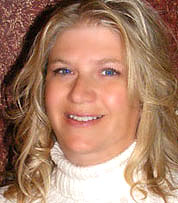
LuAnn Schindler is a full-time freelance journalist living on the eastern slope of the Nebraska Sandhills on a dairy farm with 200+ Holsteins. She currently blogs for The Muffin, the WOW! Women On Writing daily blog. Her work has appeared in the Pregnancy, 2: The Couples Magazine, Denver Post, Rural Electric Nebraskan, Absolute Write, in addition to other publications. LuAnn is a member of the International Food, Wine, and Travel Writers Association. She won a 2010 Nebraska Press Award for feature writing.
-----
Related Articles:
Getting the Skinny On E-Publishing: Interviews with Top E-Book Publishers
The Smell of Success: Transitioning the Pen and Paper Crowd to E-Books
How to Format a Screenplay: Putting Your Best Script Forward (by Christina Hamlett)
How to Tap into the Lucrative Library Market